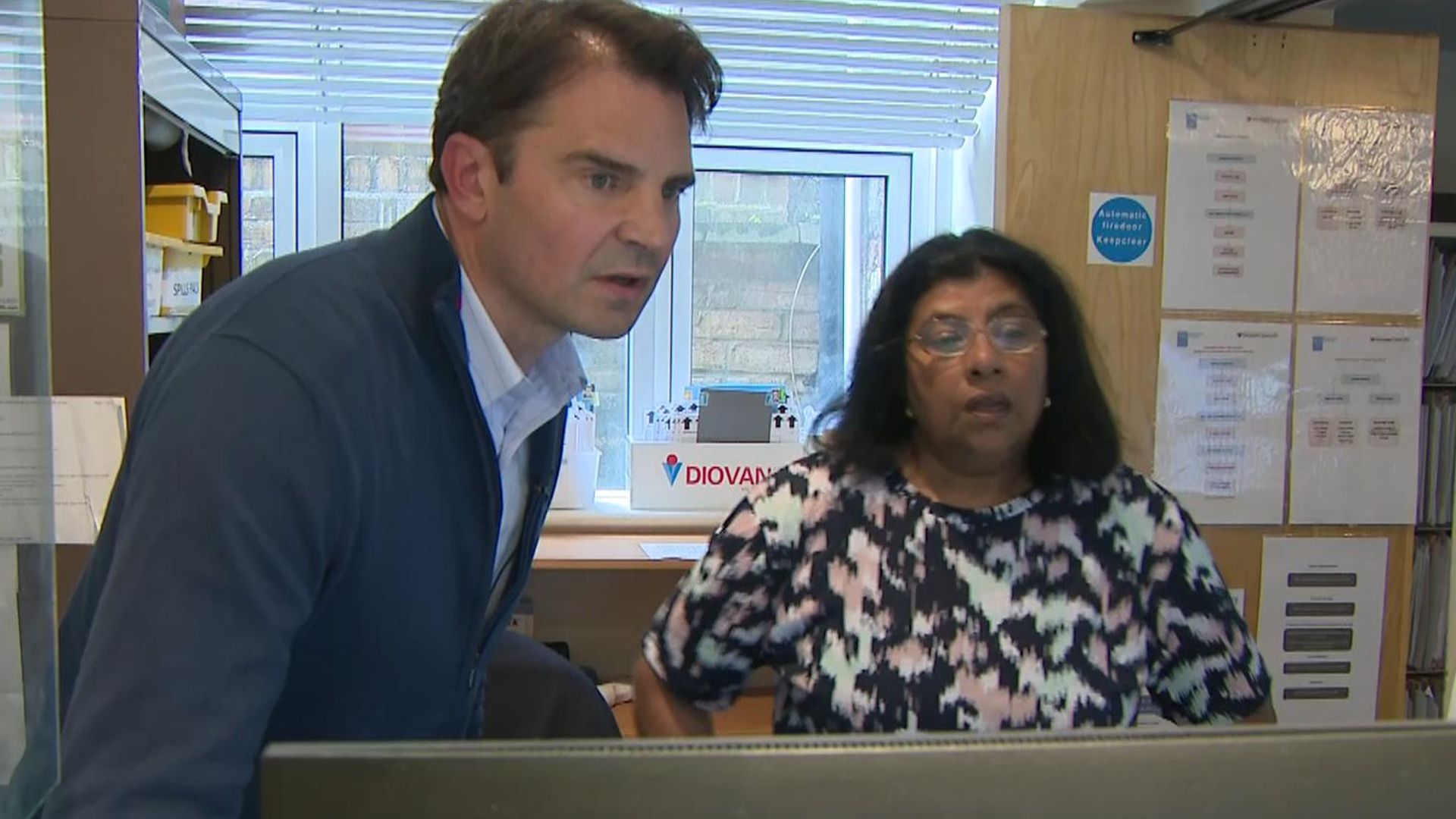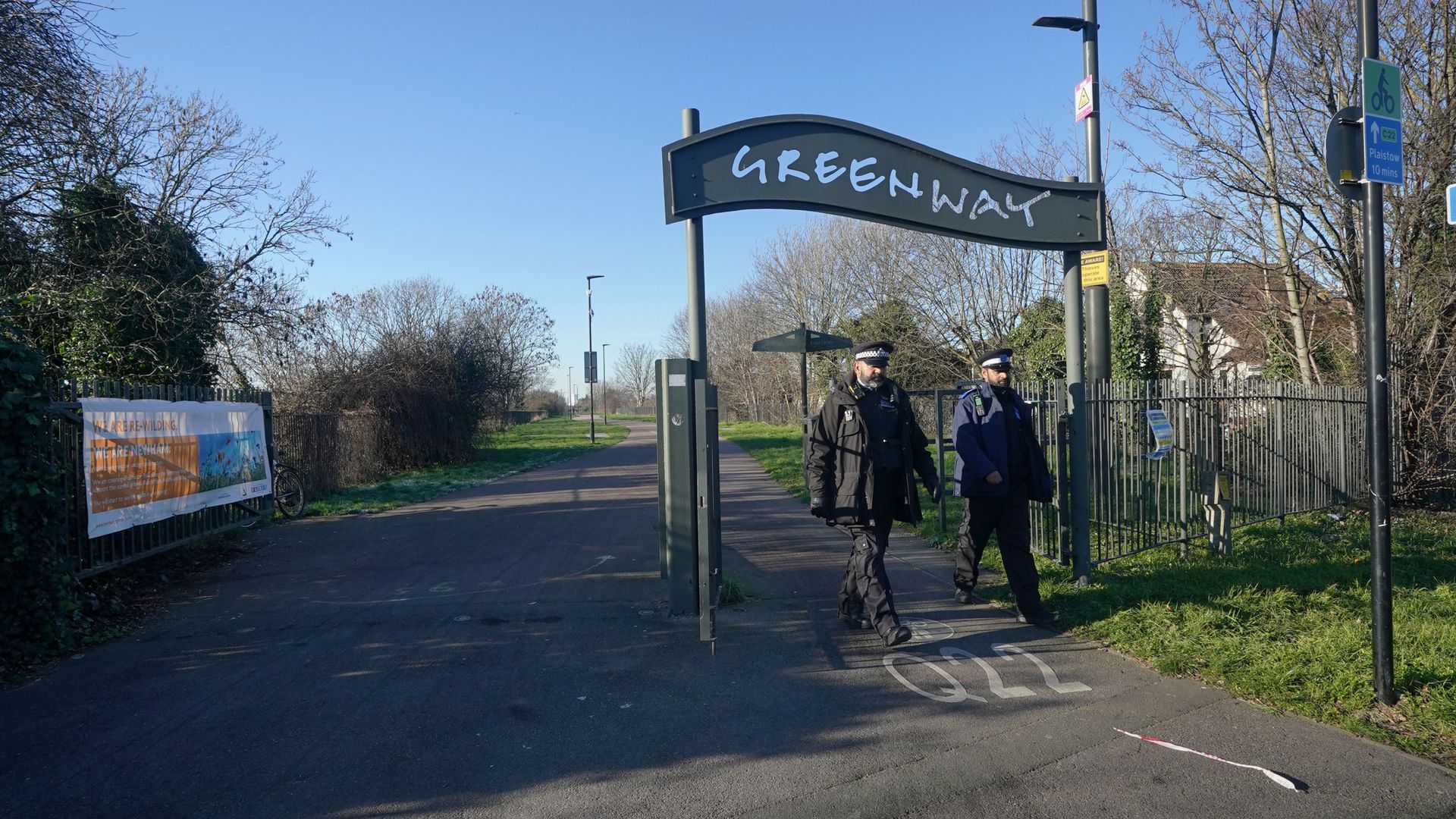A GP hit by a cyber attack on the NHS in London has told Sky News he is worried patients will suffer long and short-term harm.
The health service has launched an urgent appeal for O blood-type donors following last Monday’s ransomware attack that has affected some of the largest hospitals in the capital.
Six large NHS Trusts were impacted including hospitals such as Guy’s and St Thomas’, Great Ormond Street and King’s College Hospital. Hundreds of operations have already been cancelled.
Dr James Taylor, a partner at the South Street Medical Centre in Greenwich, southeast London, told Sky News his surgery was told to cancel all routine blood tests last Monday when Synnovis, a company contracted by the NHS to perform blood tests, was targeted by hackers.
He said: “We were informed that the IT systems were down to process our blood results. So we were asked very urgently to cancel all of our blood test appointments. So immediately we had to cancel all our clinics. And they’re still cancelled.
“We are not booking any more patients in. And we’ve been told that we can’t book any more patients in until the end of June. So we’re waiting for an update on that.”
Primary care has also been hit hard. Dr Taylor’s practice alone cares for 10,000 patients. Not one of them can have a routine blood test.
NHS issues urgent blood donation appeal after IT cyber attack leaves hospitals struggling to match patients
Procedures cancelled after cyber attack affects major London hospitals
‘World’s largest botnet’ taken down as alleged Chinese mastermind arrested and $29m in cryptocurrency seized
He said: “We all have been told that we can still send urgent results but there’s no way for them to send any of the information to us electronically.
“So yes, we’ve had to kind of alter the way that we work. We’ve had to supervise our staff here and decide what tests we can do and what we can’t do, and that is changing on a daily basis.”
Read more on the NHS:
Number of endometriosis patients waiting for treatment soars
Would you want to know if you’re likely to get cancer or dementia?
Qilin, a Russian group of cyber criminals, are understood to have been behind the attack.
Dr Taylor is worried about short and long-term harm to his patients.
He said: “There is a risk. There’s always a risk. This has been going on for about a week now, so hopefully it’s not too much longer because if you keep delaying these investigations by another few weeks or a month, then obviously the risk increases.
“But at the moment where we’re doing our best to manage it and hoping it’s a short-term problem.”
Keep up with all the latest news from the UK and around the world by following Sky News
Be the first to get Breaking News
Install the Sky News app for free
He added: “We couldn’t go on and not perform blood tests on people. And for blood tests that were perhaps slightly abnormal that we’d want to repeat. Those things are having to be delayed at the moment.”
Dr Taylor’s surgery would normally request around 125 blood tests a week.
With up to four investigations for each test, that is nearly 1,000 results every week. And that is just in this practice.
In Greenwich, some 300,000 patients have been affected. Across London, that figure is much higher.
Dr Taylor has been told to expect a severe disruption to services at least until the end of the month. Clearing up the backlog and the fallout from this cyber attack will take much longer.






